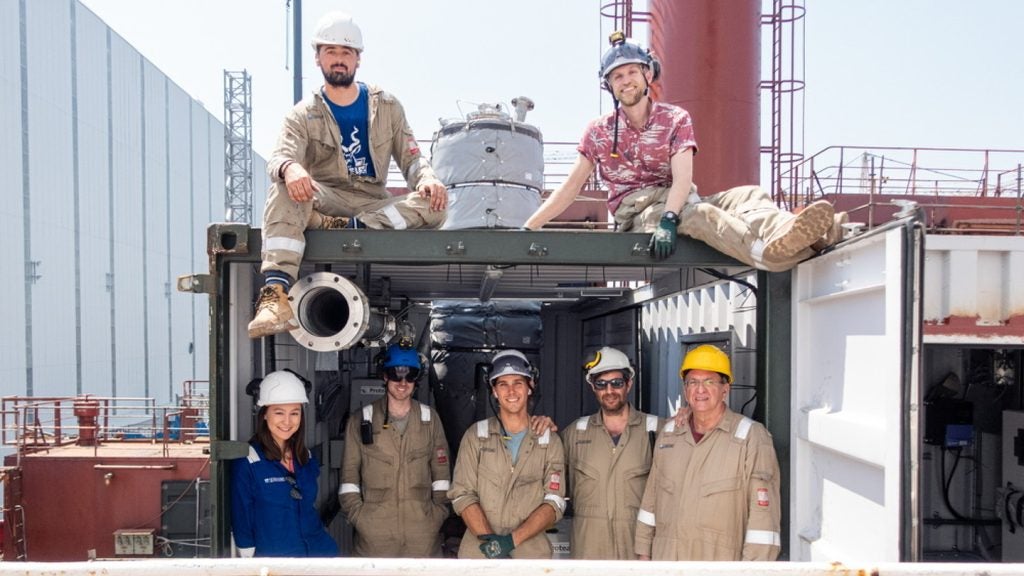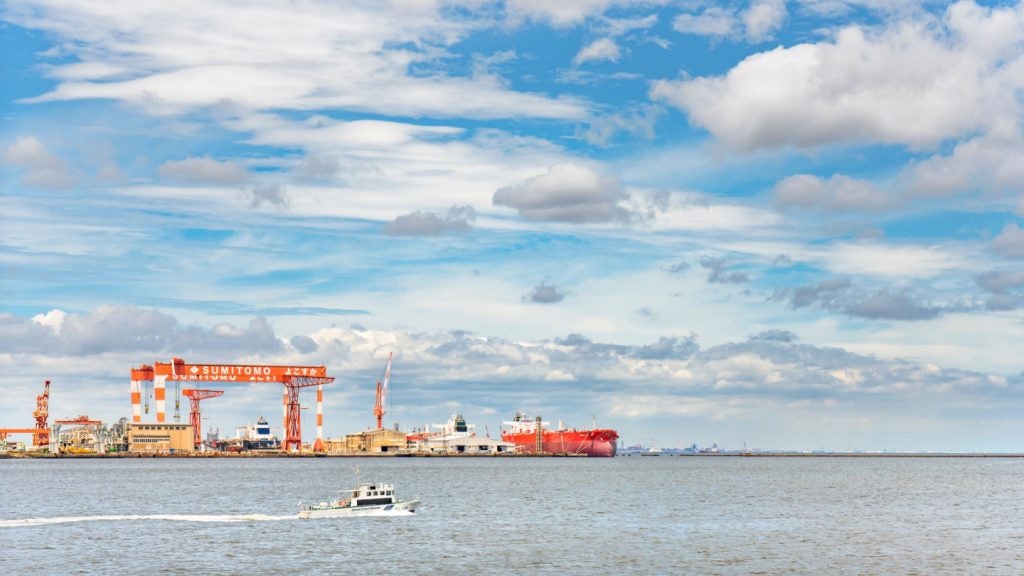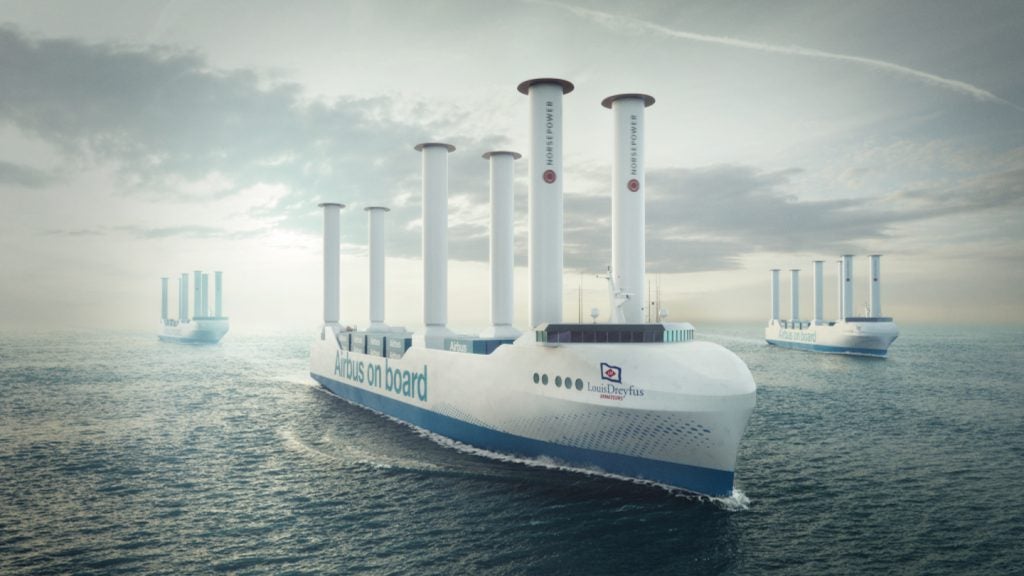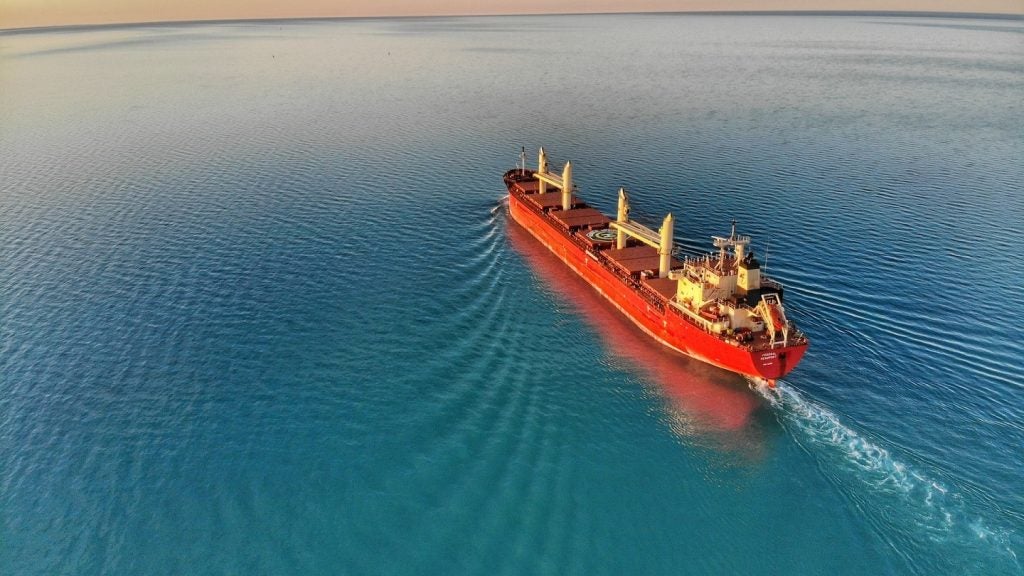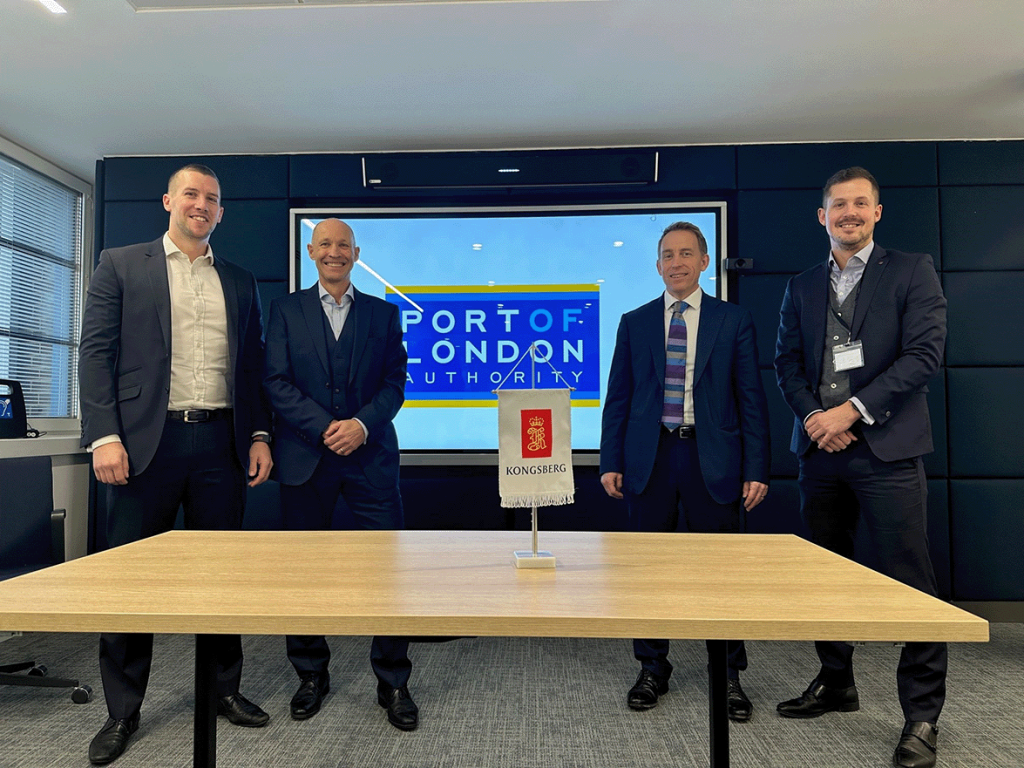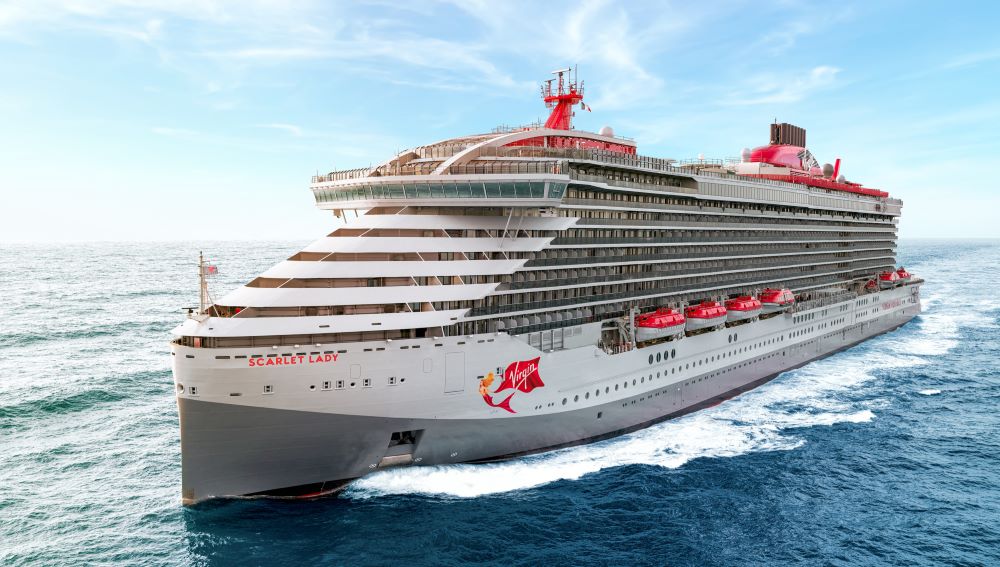Maritime carbon capture company Seabound has successfully tested its technology on a commercial container ship, demonstrating a carbon capture efficiency of 78% during the two month pilot.
The prototype calcium looping carbon capture technology was used on shipping company Lomar’s 240m long Sounion Trader while being chartered by Hapag-Lloyd and managed to capture around one tonne of CO2 per day.
Alisha Fredriksson, CEO and co-founder of Seabound, said: “Our pilot project demonstrates that we can capture carbon emissions directly onboard ships in a simple and cost-effective way.
“This breakthrough demonstrates that the shipping industry doesn’t have to wait for new fuels or solutions to reduce its emissions in the future - we can start to capture carbon from the existing fleet today.”
The pilot was conducted in collaboration with Lomar’s corporate venture lab lomarlabs and saw the technology fitted on the deck of the 3,237 TEU ship at Sefine Shipyard, Turkey in mid-2023 before being tested during a two-month voyage, after receiving testing approval from the American Bureau of Shipping.
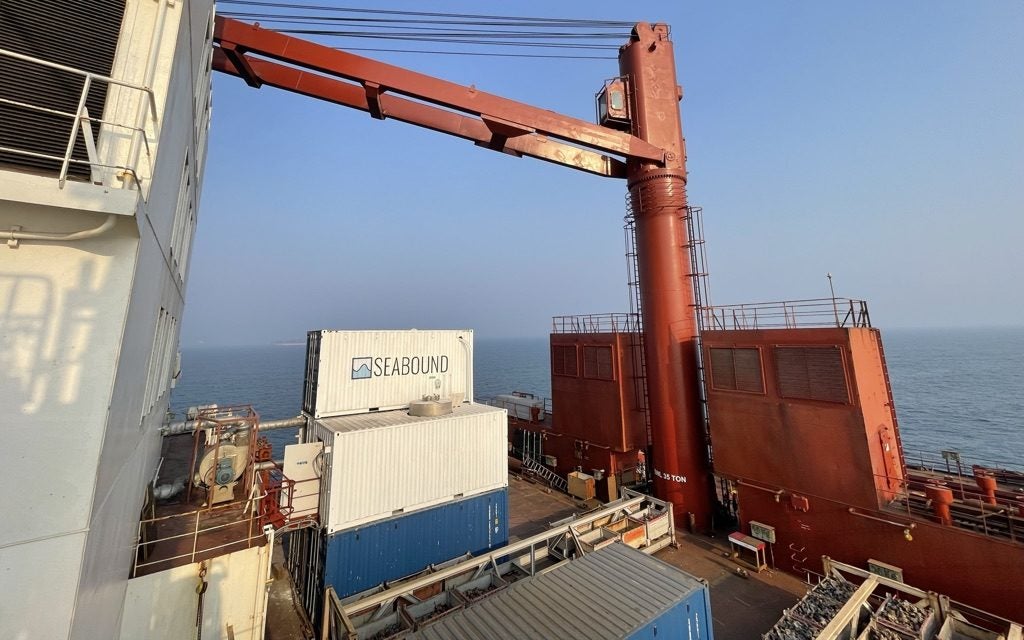
The novel technology operates on recyclable consumables and sees CO2 emissions captured and turned into solid calcium carbonate pebbles that can be offloaded in port either for use in either pure form or by being turned back into quicklime and CO2.
Stylianos Papageorgiou, managing director of lomarlabs, said: "Seabound's technology presents an attractive and viable solution to reducing carbon emission, with a technology that is simple to install, operate and maintain."
Following the successful pilot, Seabound has focussed on developing its first full-scale systems ready for commercial deliveries from 2025, it claims the technology has the potential to capture up to 95% of CO2 emissions from a ship’s exhaust.
Part of the funding, £1.2m ($1.5m) for the pilot project came from a grant given during Round 3 of the UK Government’s Clean Maritime Competition in September 2022.


